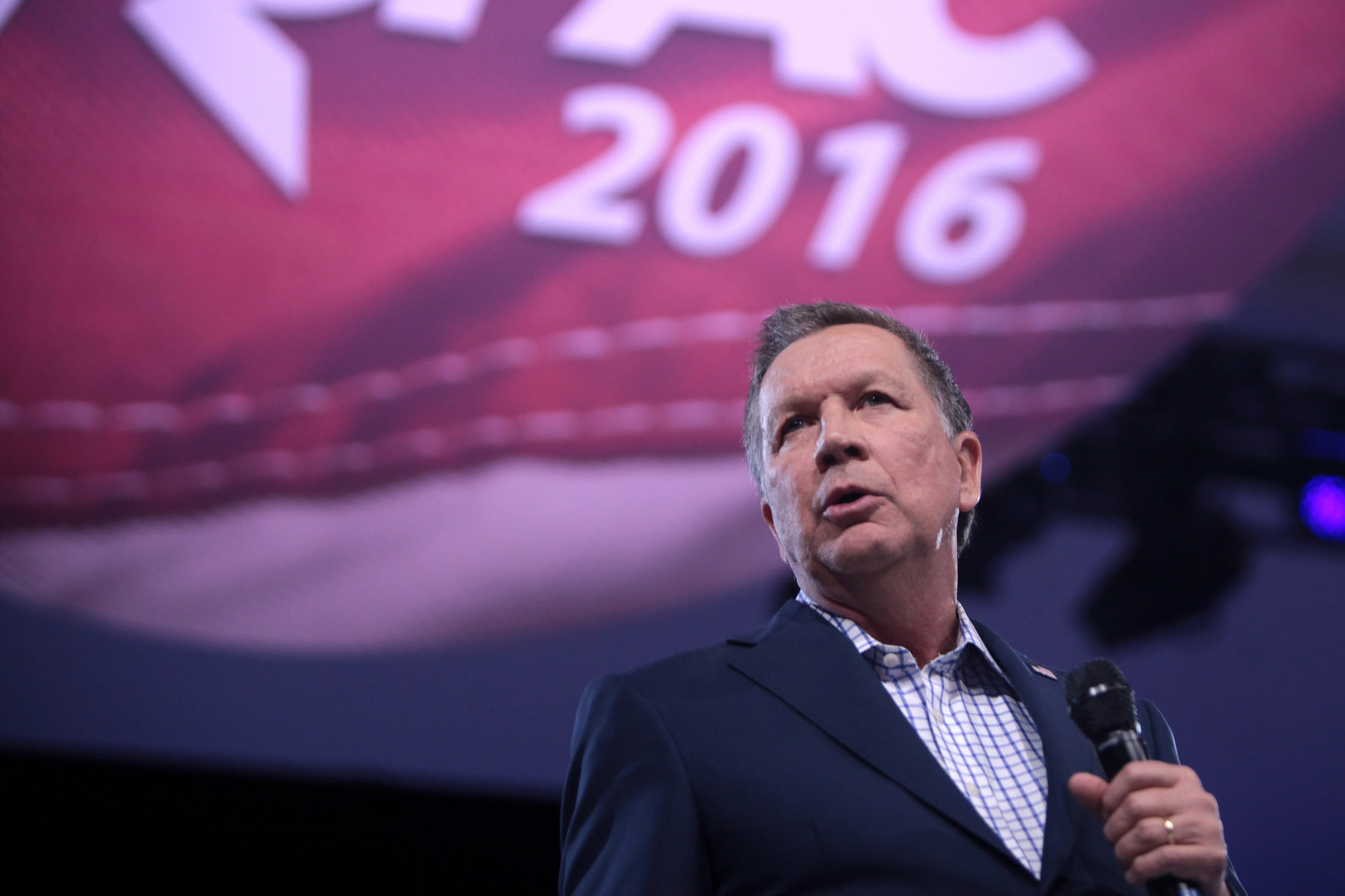Kasich’s Environmental Record is Tough to Categorize
Ohio governor and Republican presidential candidate John Kasich won his home state’s primary on Tuesday. And while the victory doesn’t net Kasich enough delegates to threaten frontrunner Donald Trump, it almost surely grants his campaign a few more weeks to pitch Kasich as an alternative.
On environmental issues, Kasich can at least make the case that he’s marching to a different beat. He’s split with some in his party by pushing a tax on the oil and gas industry in Ohio. There’s a similar debate in Pennsylvania, where Republicans say such a tax would drive away industry.
“I’m disappointed by those who say the severance tax reform will kill the industry,” Kasich said last year in his state of the state address. “That’s a joke. That’s a big fat joke, because I’ve talked to them in private. And I’ll tell you what—our severance tax will still be competitive with other energy-rich states.”
LISTEN: “Your Environment Update for March 16, 2016”
When it comes to climate change, Kasich has also broken ranks with many Republicans by saying that he believes humans do have a hand in global warming. On the other hand, Kasich has said the state will continue to burn coal without apology. Emissions from coal are considered the country’s largest contributor to global climate change.
Kasich has also been slammed by environmental groups for freezing Ohio’s renewable energy program for two years. The program required utilities to replace some energy from coal with solar and wind. But Jack Shaner of the Ohio Environmental Council says Kasich deserves some credit for ensuring that Republican lawmakers didn’t completely dismantle the renewables program.
“This is sort of the mystique of John Kasich,” Shaner says. “You just cannot categorize the guy. He is complicated.”
Reporting by Julie Grant
Is it Time to Label Genetically Modified Foods?
Gluten-free, organic, Fair Trade, you name it—labels on supermarket shelves seem to multiply by the year. And advocates concerned about genetically modified (GMO) foods have been making the argument that it’s time GMO products be clearly labeled for consumers.
Label advocates scored a big win recently when the U.S Senate voted down a bill that would have banned states from requiring GMO labels and instead created a voluntary national labeling system.
Warren Taylor, who owns a small creamery in southern Ohio, had been driving to Washington a lot lately to lobby against the Senate’s voluntary labeling bill. He sells his Snowville brand milk and yogurt at Whole Foods and other stores and says all his milk comes from cows that eat non-GMO feed.
“I think voluntary labeling is a dodge,” he says. “It’s dishonest. It means no labeling at all.”
Taylor’s effort pitted him against big dairy groups that supported the voluntary labeling law. They’ve argued that GMO labeling is fundamentally different than other labeling programs.
“Because there is no health or safety reason why GMO labeling should be required, there’s not a good argument for why we should mandate companies to disclose that information,” says Dave Carlin of the International Dairy Foods Association.
But Taylor argues full transparency is what consumers want.
“We have a right to know the process and make our own judgement as to whether we support those processes or not,” he says.
The Senate voted 49-48 to block the voluntary labeling bill. Democrats are proposing other bills and say they have been trying to negotiate a bipartisan solution.
Reporting by Julie Grant

